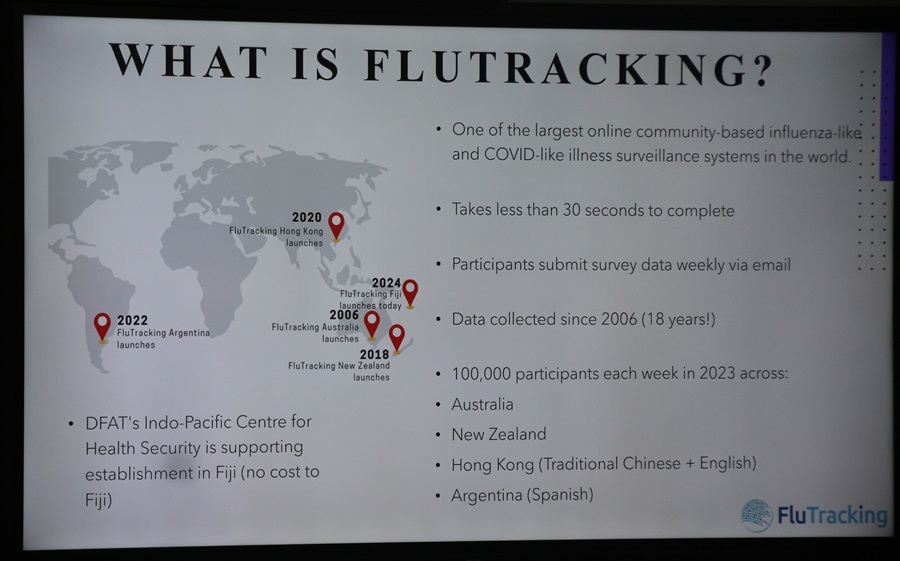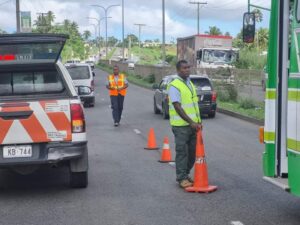Fiji has launched the Flu Tracking Project, a new initiative aimed at improving early detection of flu outbreaks through community involvement.
The project, introduced today by the Ministry of Health and Medical Services, will assist the country respond faster to flu outbreaks by collecting real-time data from volunteers by completing weekly surveys via email.
At the launch event in Suva this morning, Chief Medical Advisor Dr. Luisa Cikamatana Rauto said the FluTracking system will help the country stay ahead of potential outbreaks unlike traditional health surveillance, which only picks up cases after people visit healthcare facilities.
“This can delay outbreak detection since outbreaks usually start within communities,” Rauto said. “FluTracking addresses this gap by enabling faster detection through community-driven monitoring.”

FluTracking was first introduced in Australia in 2006 and has since expanded to New Zealand, Hong Kong, and Argentina. The system uses weekly surveys where volunteers report common flu symptoms like fever, cough, and sore throat.
Aside from early detection through community monitoring and involvement, the initiative will also assist health authorities understand health behaviours. It gathers information on how people respond to illness, and how it spreads which helps health officials plan better interventions.
Dr. Rauto encouraged everyone to sign up and participate.
The project, which comes at no cost to Fiji, is supported by the University of Newcastle, Hunter New England Population Health, Hunter Medical Research Institute, and Beyond Essential Systems, with funding from DFAT’s Indo-Pacific Centre for Health Security. Best of all, the project comes at no cost to Fiji.
In October 2023, the Fijian government approved the partnership, and the country’s CDC is now working with the Australian FluTracking team to roll out the program.








